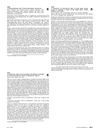Search
for
Did you mean hormonal issues?
Learn
5 / 14 resultslearn Neem Oil
natural substance from Neem tree with medicinal and pesticidal properties
learn Osteopontin
signaling protein that, when suppressed, may grow hair by reducing inflammation and stem cell loss
learn Thymosin Beta 4
learn Finasteride
Frontline, gold standard treatment for combatting androgenic alopecia
Research
5 / 1000+ results
research Hormonal Treatment for Acne
Hormonal treatments effectively manage acne in some women, especially with specific hormonal issues.

research A Clinicopathologic Study of Lichen Planopilaris Among Men
Most men with lichen planopilaris had it confirmed by biopsy and often had thyroid issues, sexual dysfunction, or prostate cancer, hinting at a link with hormonal problems.
research Clinical Study of Patients with Female Pattern Hair Loss Over a 10-Year Period
Treating underlying metabolic and hormonal issues is key to managing female hair loss.
research Endocrinology Update: Hirsutism
Hirsutism involves excessive hair growth due to hormonal issues and can be treated with medication or surgery.
research A Rare Encounter: Functional Adrenal Oncocytic Neoplasm in an 18-Year-Old Woman
Surgical removal of an adrenal tumor resolved hormonal issues in a young woman.
Community Join
5 / 930 resultscommunity Is there any hope for my hairline?
The user experienced reduced hair fall with topical minoxidil and finasteride but no regrowth, and faced hormonal issues with oral finasteride. They are considering a hair transplant and exploring treatments like topical dutasteride, oral minoxidil, microneedling, and hair supplements.
community Ru58841 for a female w male pattern baldness
A user is considering using RU58841 for female pattern baldness and is also planning to use Minoxidil. They are hesitant to ask their doctor for spironolactone due to its cosmetic nature and are experiencing significant hair loss possibly due to stress and hormonal issues.
community any news about DUPA (Diffuse unpatterned alopecia)?
The conversation discusses diffuse unpatterned alopecia (DUPA) and its possible causes, including sensitivity to DHT, not being androgenic alopecia, being diffuse alopecia areata, or hormonal issues. Treatments mentioned include topical melatonin, Clobetasol Propionate for alopecia areata, and the lack of results from using finasteride, dutasteride, and minoxidil.
community 21M cant stop hairloss at all +2 years on dut/fin
A 21-year-old male has been experiencing persistent hair loss despite using treatments like dutasteride, finasteride, RU58841, minoxidil, and ketoconazole. Suggestions include checking for hormonal issues, nutritional deficiencies, or allergies, and consulting a doctor for professional advice.
community Feeling really down and hair loss is slowly destroying me
The conversation is about a person struggling with aggressive hair loss and feeling depressed, who has tried finasteride but is experiencing sexual side effects. Others suggest various treatments like reducing finasteride dosage, trying minoxidil, dermarolling, addressing health and hormonal issues, and accepting baldness.